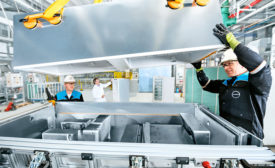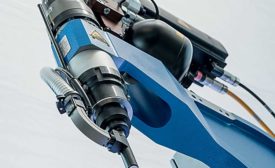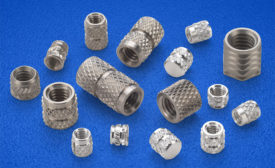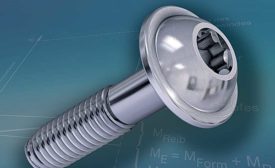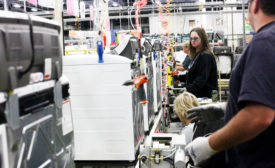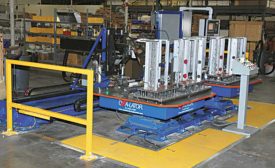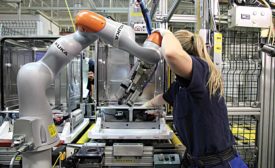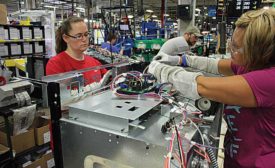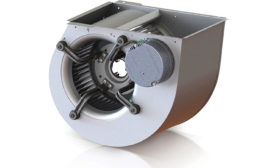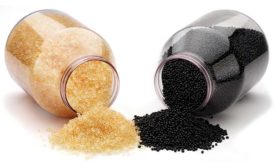Appliance Assembly
The desire for increased energy efficiency is one of the major driving forces in the appliance industry.
Read More
Advances in Self-Piercing Riveting
Self-piercing rivets are helping automakers assemble aluminum and high-strength steel
August 2, 2018
Threaded Metal Inserts for Plastic Assemblies
When specifying for such assemblies, an essential part of the decision-making process will involve how the plastic materials or components will be attached.
August 1, 2018
Screwdriving for Sheet Metal Assembly
High-strength alloys and ever-thinner gauges are complicating the process of fastening sheet metal assemblies
July 10, 2018
3D Printing Holds Potential for White Goods
Additive manufacturing is slowly catching on in the appliance industry
June 5, 2018
Motor Manufacturers Strive to Meet Furnace Fan Standards
DOE mandates drive cutting-edge innovation.
April 30, 2018
Low-Pressure Molding Controls Stress on Wire Assemblies
Hot-melt molding is the quick and efficient way to encapsulate and protect electrical components.
April 13, 2018
Never miss the latest news and trends driving the manufacturing industry
Stay in the know on the latest assembly trends.
JOIN TODAY!Copyright ©2025. All Rights Reserved BNP Media.
Design, CMS, Hosting & Web Development :: ePublishing
